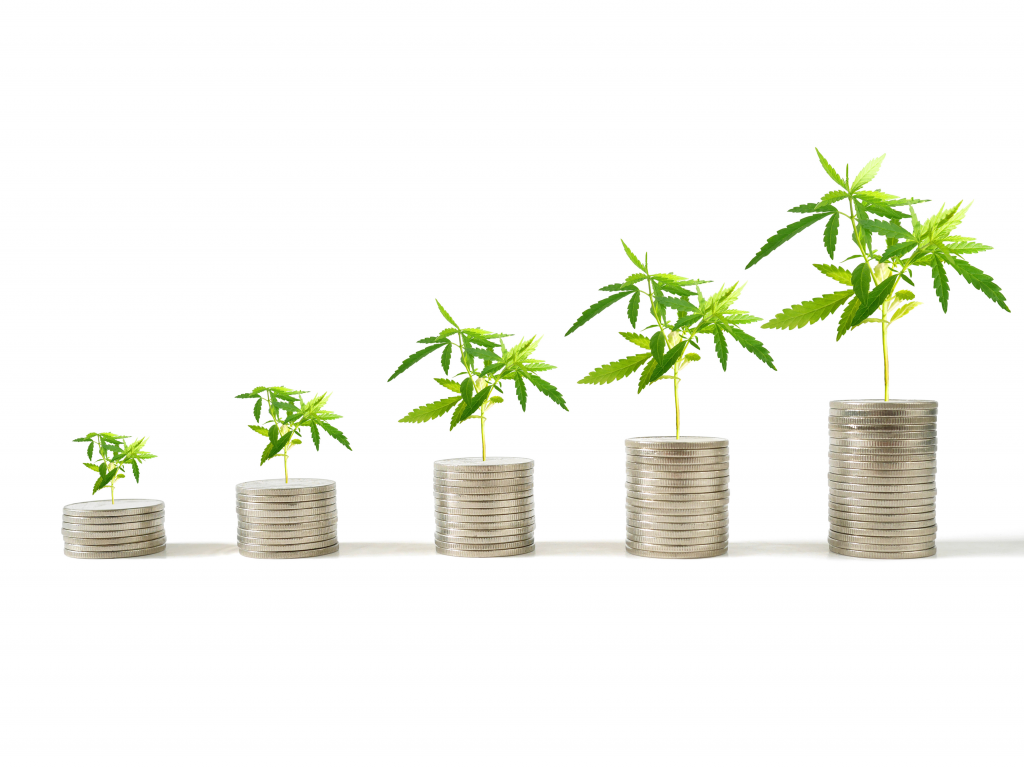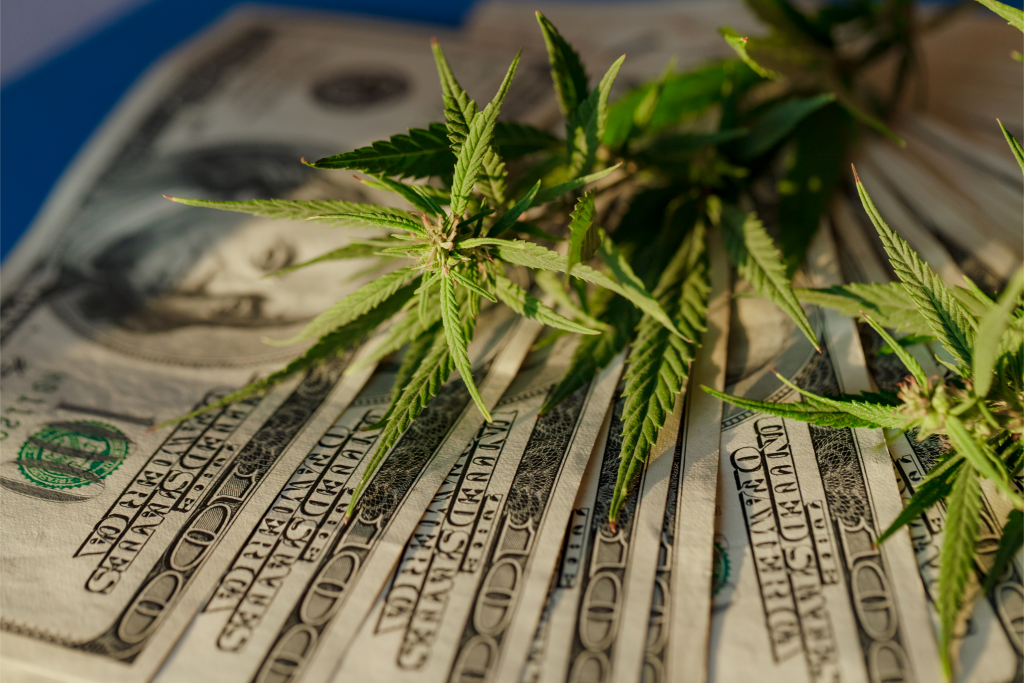In an interesting turn of events, all legalized states in the US have agreed to adopt a new stimulus policy starting next month called the CAACS Act, which will allow residents of legal locations to use cannabis as an actual form of currency.
The ability to use cannabis as a legal currency could be a real game-changer in the US, especially as people struggle to deal with the personal economic fall outs of the corona pandemic. We’re dedicated to covering everything important and interesting in the cannabis field. Keep up-to-date by signing up for the THC Weekly Newsletter, and also gain direct access to deals on vapes, edibles, and lots of other paraphernalia! We’ve also got great offers on your favorite cannabinoid compounds like HHC-O, Delta 8, Delta 9 THC, Delta-10 THC, THCO, THCV, THCP & HHC, which you can find in our “Best-of” lists. Just remember… *If you are not comfortable using these products, we fundamentally advise that you only buy products you are comfortable with using.
What is a standard currency?
I think we’re all pretty aware what the idea of ‘currency’ is, but for those who like formal definitions, here’s one for you. A currency is “a medium of exchange for goods and services. In short, it’s money, in the form of paper or coins, usually issued by a government and generally accepted at its face value as a method of payment.”
Every country has its own form of currency. We use US dollars in the US. Mexico uses pesos, the UK uses the pound, and while some European countries hold on to their former currencies from pre-EU times, the EU in general uses the Euro. These different currencies have their own values in relation to one another, and it is illegal pretty much anywhere to make a currency outside of government regulation, though counterfeiting is certainly a black market industry.
Back in the day, when bartering was a thing, people didn’t necessarily need a currency directly. Often lives were lived via trading, with products worth a certain amount in currency, traded for other products deemed to be of the same value. Even in these times though, each of these objects still had a representative value in the currency of the location.

What’s the news?
According to reports surfacing from different states, the legalized locations of the US have decided in tandem to start allowing the use of cannabis as an actual currency, which can be used alongside physical money. While we are still waiting on formal guidelines to govern this new monetary use of cannabis, including exactly what amount of cannabis will count for what amount of money, insiders close to legislators, (who were only willing to speak on condition of anonymity), contend that the value of the plant in currency will be dependent both on the quantity and the quality. Said one representative:
“This used to be a thing, many people don’t know that, but it really used to be a thing to use cannabis as money. With so much cannabis now being grown, and so many issues with personal debt, we see no reason not to allow this cannabis to be used as an actual currency for the purchase of other goods.” He went on to say that this would not apply to every retail location, and that the formal law will stipulate where and when cannabis can be used as currency. He went on,
“Look, obviously no kid can pay for a school lunch with cannabis as that would go against so many other regulations. It’s not a full-sweeping law because we have to be mindful of many things. But it does mean that you might be able to pay for your groceries soon with cannabis.”
The anonymous representative went even further: “Let’s be honest, people are having a hard time these days, especially post corona. Allowing cannabis as currency means that residents can grow their own plants, thereby giving themselves an extra financial boost. I really think the country needs this right now, even if it can only apply to places where cannabis is already legal.”
This idea was put forth several months ago by lawmakers in Colorado as a bill called SB 33407 – or the CAACS Act (Cannabis As A Currency Stimulus), and the idea was quickly adopted by all other states which have legalized cannabis, including Washington DC, which technically doesn’t have a regulated market, though it allows the cultivation and use of cannabis. Alaska and Montana were the last to agree to participate, at first concerned over how this could affect local economies, but in both cases the legislature decided to go forth with it.
While the federal government has so far refused to respond directly on the matter, it did offer one statement saying: “The US dollar is the only federally recognized currency. No other product can be used as a currency on a federal level. It will be considered a federal crime to use anything other than government sanctioned money as any form of legal tender.” Of course, the federal government says the same about using the cannabis plant in general, so that there is a discrepancy between this new law of the states, and the federal government, is not surprising.

Cannabis as a currency in the past
The reason this came up at all, is because this is actually not new ground for cannabis, though certainly not ground which has been tread on recently. While most people understand that cannabis is federally illegal now, and that prior to this illegalization it was used in many medications, and for tons of industrial purposes, fewer understand the history of cannabis use as a currency in the US. But at one time it was, and this is why it’s being eyed again to take on this role.
For those unfamiliar with the history, cannabis was an extremely important cash crop in colonial America, though this was primarily in the form of hemp. It was so important, that in 1619, Virginia established a ‘grow law’ which required all farms to grow hemp. Not only that, but at that time, it could also be used as a currency – just like paper money and coins – in Virginia, Pennsylvania, and Maryland. Even taxes could be paid using cannabis as currency.
Though this was never a policy of all colonies, it says quite a bit that three of them allowed the open use of cannabis as a currency. And it’s owing to this history that this practice will be used once again. According to state government documents leaked last week from California, “We understand that the practice of using cannabis as legal tender during colonial times was extremely beneficial, and we think it’s time to re-institute this policy, and on a much broader level.”
What should we expect?
The use of the CAACS Act is meant to help populations that have been financially damaged by corona. Obviously, it can only apply to residents in legalized places, so unfortunately, anyone residing in an illegal location will not be able to take part in this stimulus act. This has caused rising frustration among legislators in illegal states, who also see the benefit this could provide for cash-strapped citizens.
While cannabis will still be available for purchase in dispensaries, the CAACS Act will allow every resident who is of legal age to use cannabis in their state, to grow up to 10 plants for the purpose of currency, even if this is more than current limitations provide by particular state regulation. Residents must obtain a license for growing for this purpose, and they must have their plants certified as home grown by inspectors, to ensure that the cannabis is not being bought and resold. All cannabis grown on personal properties can then be used in approved monetary transactions.
How much pushback there will be by the federal government has not been made clear. In recent years, the federal government has had to back off of legal states, ending years of targeting users legally using by state policy. Though the original legislators who initially wrote the bill in Colorado are mindful of how much federal resistance there could be, its Senate Majority leader was quick to point out that “no change is being made to federal currency, which will continue to operate in the same way. SB 33407 simply allows for a secondary form of currency to be used in many places.”

Within the next couple weeks, more specific guidelines have been promised by a group of legislators which represent all states involved. And by the beginning of next month, residents will be able to start producing their very own cash crops. It’s expected that home cultivation will rise extensively in these locations, with a record-breaking amount of orders already placed to seed companies, as well as companies that provide paraphernalia for growing, since information of the stimulus act first leaked. Said shop owner Peter Almont, who owns a growing equipment store in Oregon, “I’m literally sold out at the moment, and that’s never happened before.”
Though more specific information regarding this is on the way, as stated, individuals who would like to access the CAACS Act will have to register as a ‘currency grower’, receive the proper license, and submit to all upcoming regulatory measures in order to legally partake in this process. Those who illegally grow cannabis for currency purposes, or who break regulation, could face administrative or criminal charges. This will be made more clear when the relevant guidelines are published.
Conclusion
Corona certainly hit many people very hard, with very little offered to the general population beyond stimulus payments that got used up quickly, and which not every person had access to. The new CAACS Act, which allows cannabis as a currency, might be the first step taken by local governments to really help their people recoup lost income from the pandemic.
Does this all sound a little hard to believe? Make sure to doublecheck that publication date 😉
Thanks for joining us at CBDtesters.co/Cannadelics.com, the best internet location for comprehensive coverage of the cannabis and psychedelics fields. Stop by frequently to keep updated on the exciting universe of cannabis and psychedelics, and check out The THC Weekly Newsletter, for your daily dose of drug-related news.
Disclaimer: Hi, I’m a researcher and writer. I’m not a doctor, lawyer, or businessperson. All information in my articles is sourced and referenced, and all opinions stated are mine. I am not giving anyone advice, and though I am more than happy to discuss topics, should someone have a further question or concern, they should seek guidance from a relevant professional.